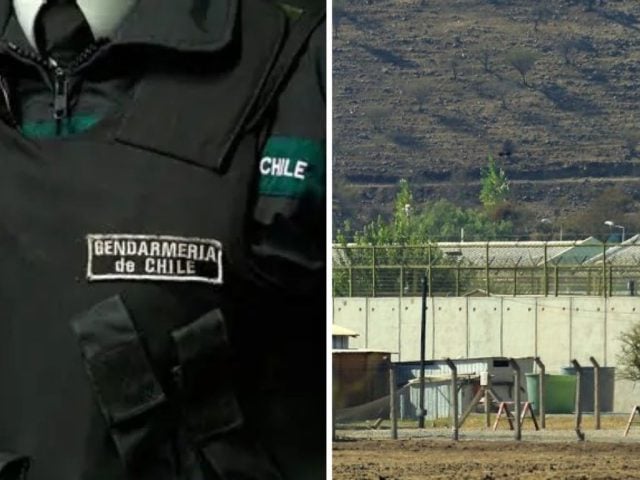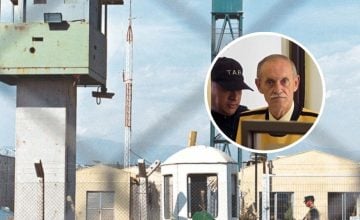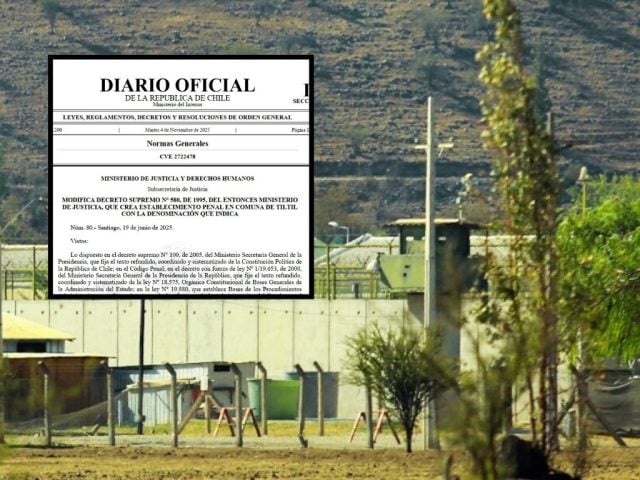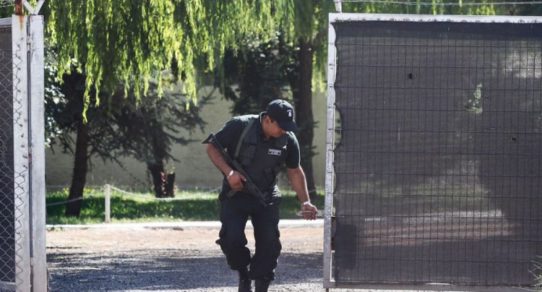Original article: Presos del ex Punta Peuco pierden batalla por los refrigeradores: Corte respalda decisión de Gendarmería
In a unanimous ruling, the Third Chamber of the Santiago Court of Appeals rejected the protective action filed by 134 inmates at the Til-Til Penal Center (formerly Punta Peuco), who sought to reverse Gendarmería’s measure that restricted the use of personal refrigerators in the prison.
The court’s decision supports the actions of the prison administration, justifying them based on the safety of the electrical infrastructure and within the framework of the transformation process of this correctional facility, where individuals convicted of crimes against humanity are confined alongside the general prison population.
The conflict began on June 19, 2025, when the prison warden, Major Cristóbal Vargas, informed the inmates that, per instructions from Gendarmería’s National Headquarters, most personal refrigerators would be removed, leaving only one appliance for every four inmates. A deadline of seven days was set, until June 26, for prisoners to notify their families and arrange for the removal of the appliances.
The inmates, all senior citizens averaging 80 years old, convicted of crimes against humanity during Chile’s military dictatorship, argued through their lawyer, Carla Fernández Montero, that these refrigerators were essential for storing medical supplies—such as insulin—and special nutritional products required for their chronic health conditions, including diabetes and hypertension.
«Refrigerators allow for the preservation of various perishable foods, especially dairy, meats, and eggs, which are essential for the diet of an elderly person, and which the daily meals do not adequately provide, particularly for individuals needing a high-protein, low-fat diet, such as the 78 hypertensive inmates,» she stated in the appeal against Gendarmería.
The lawyer claimed that the decision violated «fundamental rights» and could constitute «cruel treatment akin to torture towards these individuals, degrading their dignity.»
«My clients are being treated unlawfully, constituting cruel and inhumane treatment. The described conditions represent a blatant attack on their dignity,» Fernández asserted in the legal document.
She also referenced international standards, such as the Covenant on Civil and Political Rights and the Mandela Rules from the United Nations regarding the treatment of persons deprived of liberty.
At that time, Gendarmería justified the measure by claiming «energy efficiency,» but the inmates and their defense argued that it was connected to President Gabriel Boric’s announcement to convert Punta Peuco into a general prison, as stated in his latest public address, which would imply the inclusion of new inmates with different criminal profiles.
In the legal action, attorney Fernández requested that the court accept their appeal and order Gendarmería to refrain from removing the refrigerators.
Court Supports Gendarmería’s Decision
In its ruling, the Third Chamber of the appeals court—composed of Minister Pedro Caro, Minister Paula Rodríguez, and lawyer (i) Nicolás Stitchkin—determined that Gendarmería’s decision «is neither illegal nor arbitrary.»
The appellate court argued that, according to Article 11 of the Penitentiary Establishments Regulations, Gendarmería is responsible for the administration of penitentiary establishments, while Article 26 states that «all inmates are obliged to comply with regulatory precepts, especially those related to order and discipline, health and hygiene, proper conduct, and to carefully maintain the facilities and personal utensils provided to them.»
Thus, the institution could «adopt all pertinent measures for good administration of the prison facilities.»
However, the court indicated there would be an exception concerning the «respect for basic living conditions» of the same regulation, according to the «respect for the dignity of the inmates.»
Regarding the number of refrigerators per inmate—one for every four (a total of 105 within the penal facility)—the ruling determined that it «is neither illegal nor arbitrary,» and that the measure «is based on safety reasons concerning the prison’s infrastructure.»
This is due to a technical report that documented «a progressive increase in load and consumption due to overcrowding» in the prison’s electrical system, combined with «deteriorating installations» that presented «poor conditions and evident overloading from high-consumption electrical devices.»
The report indicated that more than 370 million pesos would be needed for improvement projects to normalize the installations, funds that were not available.
The court also accepted Gendarmería’s information that medication «is administered exclusively by health personnel and is not stored by inmates in personal appliances» and that the institutional meal plans «adequately meet the nutritional needs of the inmates.»
Moreover, it found that the restriction does not violate the «Nelson Mandela Rules» of the United Nations or the principles of the Inter-American Commission on Human Rights, as it does not contravene the rules of dignified treatment.
Consequently, the Third Chamber of the Santiago Court of Appeals determined that «the protective action filed on behalf of 134 convicted inmates of the Punta Peuco Correctional Facility, now the Til-Til Correctional Facility, against the Gendarmería de Chile is rejected.»
Below is the court ruling:
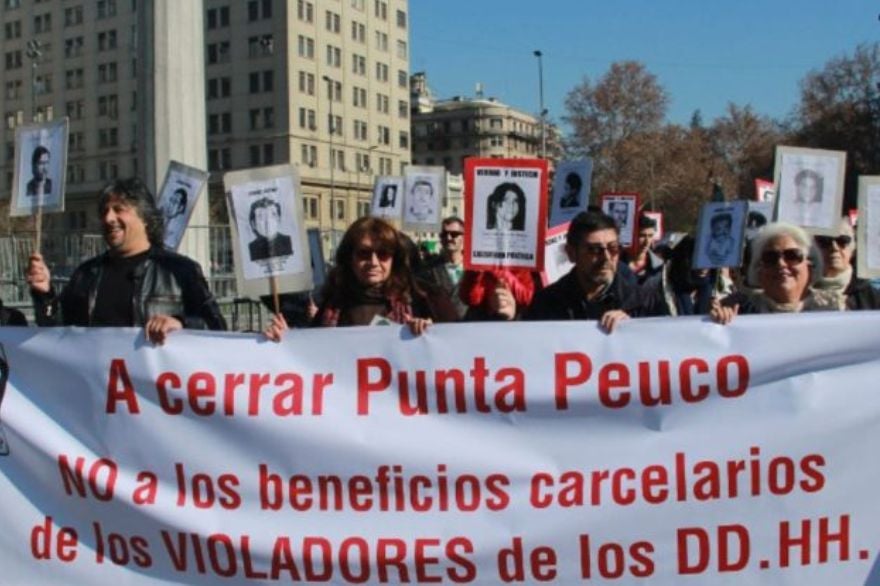
Punta Peuco is a General Prison: No More First- and Second-Class Inmates
This ruling occurs amid the transformation process of the former Punta Peuco Prison, which for three decades housed only those convicted of human rights violations during the military dictatorship, into a general prison.
President Gabriel Boric announced this transformation in his public address on June 1, 2025, stating that «from today in Chile, there are no first- and second-class inmates» and that «prison spots will be allocated based on security parameters, not privilege.»
On November 4, the supreme decree changing the facility’s name to «Til Til Correctional Facility» was published in the Official Gazette.
Inaugurated in 1995 during President Eduardo Frei Ruiz-Tagle’s administration, Punta Peuco was specifically designed to house members of the Armed Forces and former state agents convicted of crimes against humanity.
Unlike the common penitentiary system, the facility was characterized by offering exceptional and privileged conditions, which included individual rooms in four modules, each with a living room, kitchen, and shower, access to personal appliances, satellite television, personal computers (without internet), communal patios, and even a tennis court.
For decades, these conditions had been criticized in reports from the Judiciary and the National Human Rights Institute, as well as by victims’ families who highlighted the privilege enjoyed by inmates compared to those in other penitentiary facilities across the country.
With the rejection of the protective action regarding the refrigerators, the normalization process of the former Punta Peuco is solidified, marking the end of an era in the Chilean penitentiary system and aligning the conditions of confinement for those convicted of dictatorship-era crimes with the rest of the country’s penal population.
